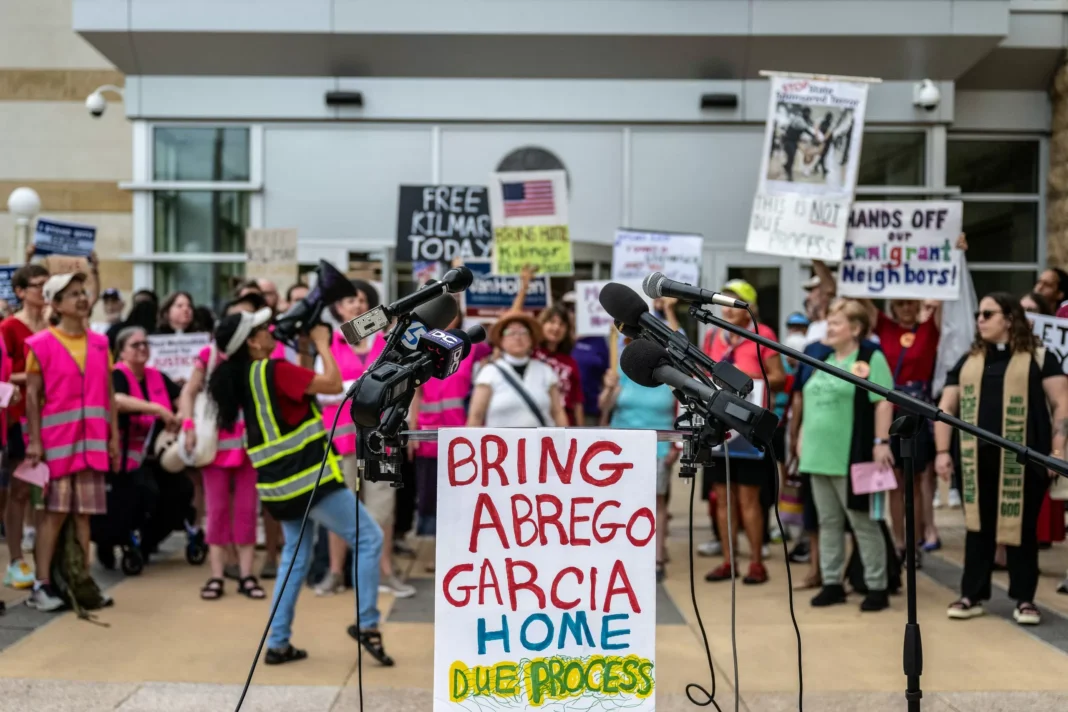The United States has a long history of being a land of opportunity, welcoming immigrants from all over the world in search of a better life. However, under the Trump administration, the American dream is becoming more of a nightmare for immigrants, especially those who have been caught in the crossfire of America’s failed drug war.
President Trump campaigned on a platform of cracking down on illegal immigration and has followed through on his promise by implementing policies that not only target undocumented immigrants, but also legal immigrants. One of the most detrimental of these policies is the administration’s aggressive stance on drug offenses.
The ‘zero-tolerance’ policy put into place by the Trump administration has resulted in the separation of families, outrage from human rights groups, and a growing number of immigrants being funneled into a legal black hole. This black hole, created by America’s failed drug war, has left thousands of immigrants in a state of uncertainty and fear.
The US has the highest incarceration rate in the world, and a significant portion of those incarcerated are non-violent drug offenders, many of whom are immigrants. The misguided notion that locking up these individuals will solve the drug problem has instead led to a broken justice system that disproportionately affects marginalized communities.
The war on drugs has been a failure, with little effect on drug usage rates and a staggering cost to society. Yet, instead of acknowledging this failure and implementing much-needed reform, the Trump administration has doubled down on harsh anti-drug policies that have dire consequences for immigrants.
One of these consequences is the increased risk of deportation for legal permanent residents. Under US immigration law, any drug conviction, even a minor one, can lead to deportation, leaving individuals who have built lives and families in the US vulnerable to losing everything they have worked for.
Immigrants who are in the process of obtaining legal status or citizenship are also not spared from the grips of the failed drug war. The administration’s aggressive stance has led to increased scrutiny and denial of immigration status for individuals who have a drug conviction, regardless of how minor it may be.
This has created a legal limbo for many immigrants, who are now stuck in a cycle of never-ending court hearings and appeals, all while living in fear of deportation. These individuals are essentially trapped in a legal black hole, unable to move forward with their lives or return to their home countries.
Moreover, the Trump administration’s policies have also taken a toll on the US asylum system. Many immigrants seeking refuge from violence and persecution in their home countries have been turned away due to past drug offenses, even if their charges were politically motivated or unjust.
As a result, many individuals who may have a valid claim for asylum are being denied the opportunity to seek refuge in the US, and are instead being sent back to potentially dangerous situations.
The current administration’s focus on immigration and drug policies has not only created a legal black hole for immigrants but has also diverted resources and attention away from more pressing issues, such as the opioid epidemic. Instead of investing in treatment and prevention, the Trump administration has opted for stricter enforcement, leading to a vicious cycle of incarceration and recidivism.
It is time for the US to acknowledge the failure of the drug war and adopt a more compassionate and pragmatic approach to addressing drug addiction and immigration. This includes implementing criminal justice reform to reduce incarceration rates, providing avenues for rehabilitation and reentry for non-violent drug offenders, and creating a fair and just path to citizenship for immigrants.
The treatment of immigrants in the US should align with the values of justice, fairness, and compassion that have long been associated with the American dream. It is time for the Trump administration to stop pushing immigrants into a legal black hole and instead work towards creating a system that promotes inclusivity, equality, and opportunity for all.


